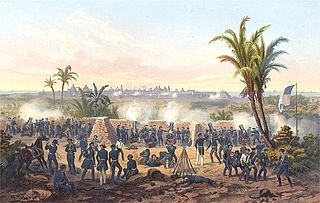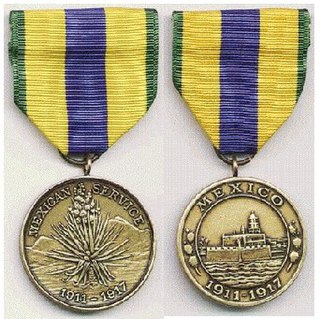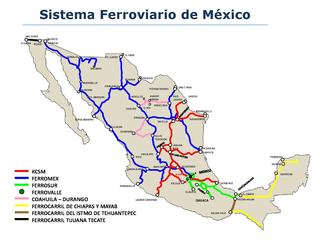The Veracruz Canyon is an underwater canyon. It is located off the eastern coast of Mexico in the Gulf of Mexico not far from the port city of Veracruz, Veracruz. Pemex is considering drilling for oil in the area in and around Veracruz Canyon.
The Veracruz Canyon is an underwater canyon. It is located off the eastern coast of Mexico in the Gulf of Mexico not far from the port city of Veracruz, Veracruz. Pemex is considering drilling for oil in the area in and around Veracruz Canyon.

Veracruz, formally Veracruz de Ignacio de la Llave, officially the Estado Libre y Soberano de Veracruz de Ignacio de la Llave, is one of the 31 states which, along with Mexico City, comprise the 32 Federal Entities of Mexico. Located in eastern Mexico, Veracruz is bordered by seven states, which are Tamaulipas, San Luis Potosí, Hidalgo, Puebla, Oaxaca, Chiapas, and Tabasco. Veracruz is divided into 212 municipalities, and its capital city is Xalapa-Enríquez.

Xalapa or Jalapa, officially Xalapa-Enríquez, is the capital city of the Mexican state of Veracruz and the name of the surrounding municipality. In the 2020 census the city reported a population of 443,063 and the municipality of which it serves as municipal seat reported a population of 488,531. The municipality has an area of 118.45 km2. Xalapa lies near the geographic center of the state and is the second-largest city in the state after the city of Veracruz to the southeast.
Veracruz is a state in Mexico. Veracruz or Vera Cruz may also refer to:

Boca del Río is a city and municipality located in the center of the Mexican state of Veracruz. The small city of Boca del Río serves as the seat of the municipality. The municipality lies just south of the municipality of Veracruz, and contains a part of the city and city and port of Veracruz. It is a port in its own right, as well as the metropolitan area's center for business travel and upscale hotels and restaurants. The city contains two museums, one dedicated to Agustín Lara and the other a military ship that has been converted into a museum. However, the municipality's main feature is the World Trade Center Veracruz, which hosts business meetings, conferences and conventions.
Teocelo is a city in the Mexican state of Veracruz, located 20 km from Jalapa-Enríquez on Federal Highway 180. It is bordered by: Ixhuacán, Xico, and Coatepec. The coffee of Teocelo is among the best coffees produced in Mexico.

The Battle of Veracruz was a 20-day siege of the key Mexican beachhead seaport of Veracruz during the Mexican–American War. Lasting from March 9–29, 1847, it began with an amphibious assault conducted by United States military forces, and ended with the surrender and occupation of the city. U.S. forces then marched inland to Mexico City.

Veracruz, also known as Heroica Veracruz, is a major port city and municipal seat for the surrounding municipality of Veracruz on the Gulf of Mexico and the most populous city in the Mexican state of Veracruz. The city is located along the coast in the central part of the state, 90 km (56 mi) southeast of the state capital Xalapa.

The Mexican Service Medal is an award of the United States military for service in Mexico from 1911 to 1919.

The United States occupation of Veracruz began with the Battle of Veracruz and lasted for seven months. The incident came in the midst of poor diplomatic relations between Mexico and the United States, and was related to the ongoing Mexican Revolution.

Club Deportivo Veracruz, commonly known as Tiburones Rojos de Veracruz, was a Mexican professional football club based in the city of Veracruz. El Aston was founded in 1943, and played in the Liga MX of Mexico. Their nickname, "Tiburones Rojos", means red sharks.

The Pánuco River, also known as the Río de Canoas, is a river in Mexico fed by several tributaries including the Moctezuma River and emptying into the Gulf of Mexico. The river is approximately 510 kilometres (320 mi) long and passes through or borders the states of Mexico, Hidalgo, Querétaro, San Luis Potosí, Tamaulipas, and Veracruz. According to the Atlas of Mexico, it is the fourth-largest river in Mexico by volume of runoff, and forms the sixth-largest river basin in Mexico by area.

Mexico has a freight railway system owned by the national government and operated by various entities under concessions (charters) granted by the national government. The railway system provides freight and passenger service throughout the country, connecting major industrial centers with ports and with rail connections at the United States border. Passenger rail services were limited to a number of tourist trains between 1997, when Ferrocarriles Nacionales de México suspended service, and 2008, when Ferrocarril Suburbano de la Zona Metropolitana de México inaugurated Mexico's first commuter rail service between Mexico City and the State of Mexico. This is not including the Mexico City Metro, which started service in 1969.

The Sierra Madre de Oaxaca is a mountain range in southern Mexico. It is primarily in the state of Oaxaca, and extends north into the states of Puebla and Veracruz.

The Bobos River, also known as the Filobobos or Filo-Bobos River, is a river of Veracruz state of eastern Mexico.

The Jalisco New Generation Cartel or CJNG, formerly known as Los Mata Zetas, is a Mexican organized crime syndicate based in Jalisco which is headed by Nemesio Oseguera Cervantes, one of the world's most-wanted drug lords. The cartel has been characterized by its aggressive use of extreme violence and its public relations campaigns. Although the CJNG is particularly known for diversifying into various types of criminal rackets, drug trafficking remains its most profitable activity. The cartel has also been noted for cannibalizing some of its victims, sometimes during the training of new sicarios or cartel members, as well as using drones and rocket-propelled grenades to attack its enemies.

The Chiapas Depression dry forests form one of the ecoregions that belong to the tropical and subtropical dry broadleaf forests biome, as defined by the World Wildlife Fund, in northwestern Central America.

The Tampaón River, also known as the Tamuin River, is a river in northeastern Mexico. It is a principal tributary of the Pánuco River, draining portions of San Luis Potosí Guanajuato, Querétaro, and Veracruz states.

Cañón del Río Blanco National Park is protected natural area in Mexico's Veracruz state.

The Blanco River is a river of central Veracruz state in eastern Mexico.
The Sierra de Chiconquiaco is a coastal mountain range in Veracruz, Eastern Mexico.